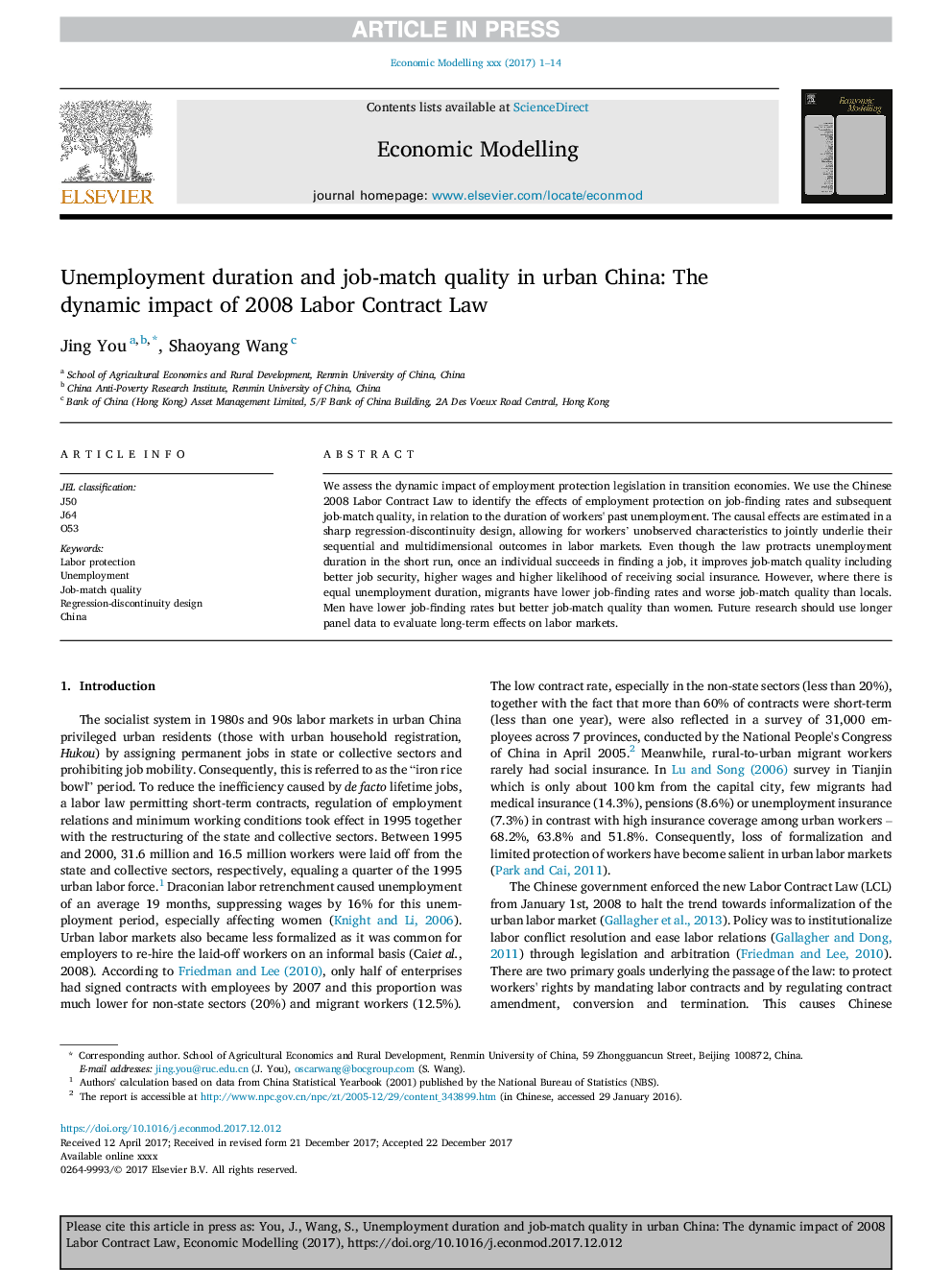| Article ID | Journal | Published Year | Pages | File Type |
|---|---|---|---|---|
| 7347249 | Economic Modelling | 2018 | 14 Pages |
Abstract
We assess the dynamic impact of employment protection legislation in transition economies. We use the Chinese 2008 Labor Contract Law to identify the effects of employment protection on job-finding rates and subsequent job-match quality, in relation to the duration of workers' past unemployment. The causal effects are estimated in a sharp regression-discontinuity design, allowing for workers' unobserved characteristics to jointly underlie their sequential and multidimensional outcomes in labor markets. Even though the law protracts unemployment duration in the short run, once an individual succeeds in finding a job, it improves job-match quality including better job security, higher wages and higher likelihood of receiving social insurance. However, where there is equal unemployment duration, migrants have lower job-finding rates and worse job-match quality than locals. Men have lower job-finding rates but better job-match quality than women. Future research should use longer panel data to evaluate long-term effects on labor markets.
Related Topics
Social Sciences and Humanities
Economics, Econometrics and Finance
Economics and Econometrics
Authors
Jing You, Shaoyang Wang,
